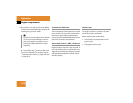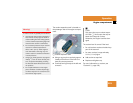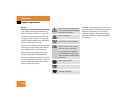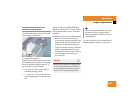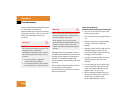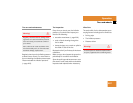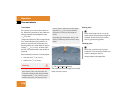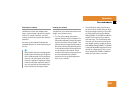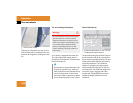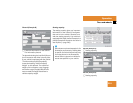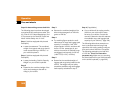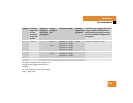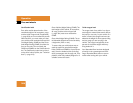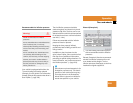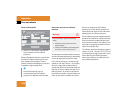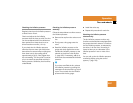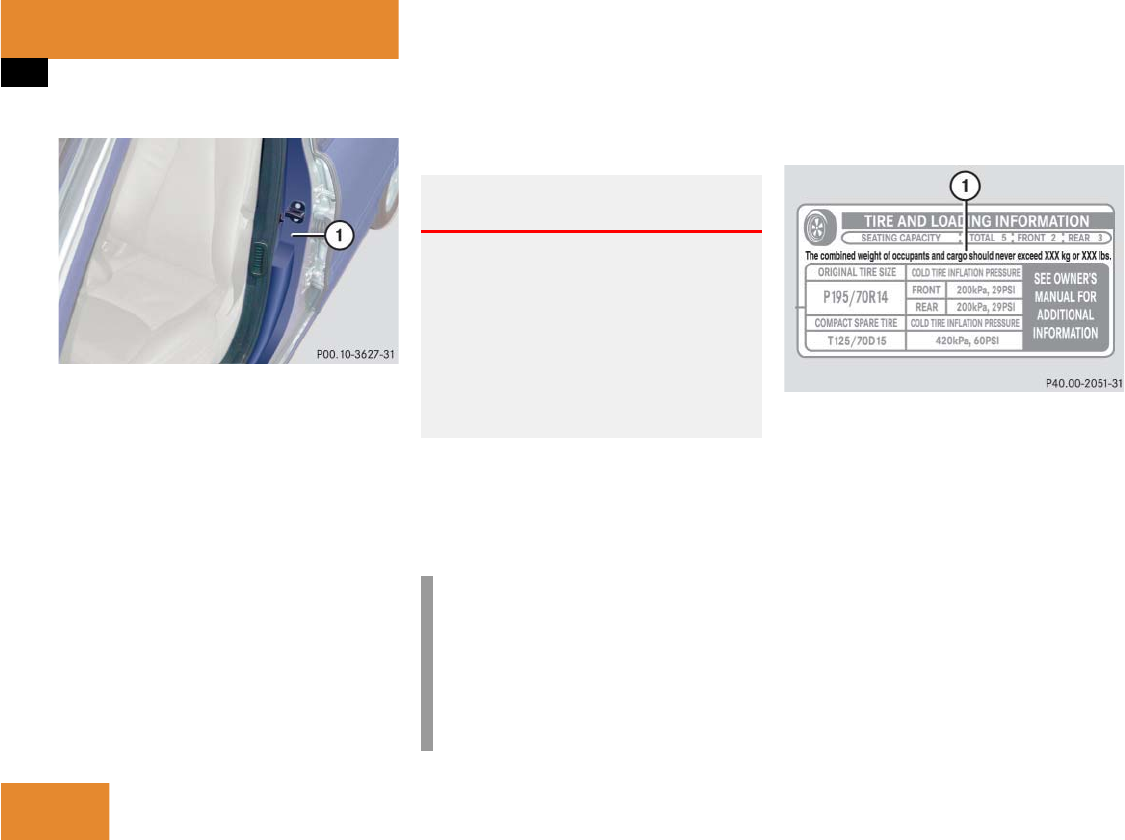
300
Operation
Tires and wheels
1 Driver’s door B-pillar
Following is a discussion on how to work
with the information contained on the two
placards with regards to loading your vehi-
cle.
Tire and Loading Information
Your vehicle is equipped with either the
Tire and Loading Information placard
(Example A) or the Vehicle Tire Information
placard (Example B).
Placard (Example A)
1 Load limit information on the Tire and
Loading Information placard
The placard showing the load limit informa-
tion is located on the driver's door B-pillar.
If your vehicle is equipped with the Tire and
Loading Information placard (Example A),
locate the statement “The combined
weight of occupants and cargo should
never exceed XXX kilograms or XXX lbs.”
on this placard. The combined weight of all
occupants, cargo/luggage and trailer
tongue load (if applicable) should never
exceed the weight referenced in that
statement.
Warning! G
Do not overload the tires by exceeding the
specified load limit or vehicle capacity
weight as indicated on the placard on the
driver’s door B-pillar. Overloading the tires
can overheat them, possibly causing a
blowout. Overloading the tires can also
result in handling or steering problems, or
brake failure.
i
Data shown on placard examples is for
illustration purposes only. Load limit
data is specific to each vehicle and may
vary from data shown in the illustra-
tions below. Refer to placard on vehicle
for actual data specific to your vehicle.



